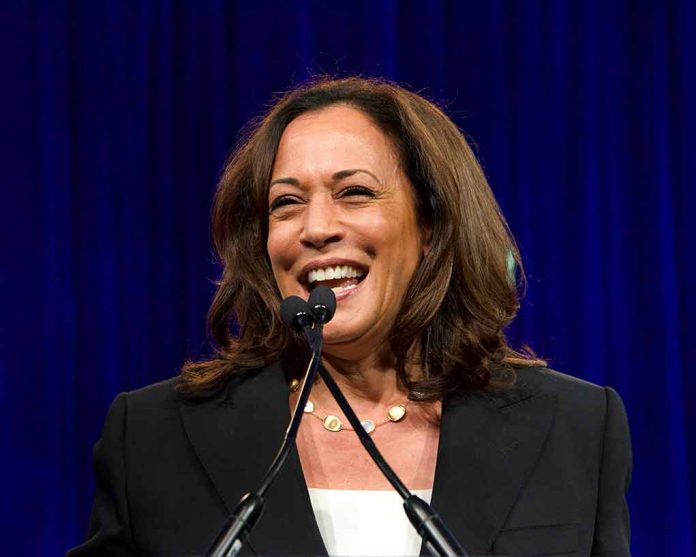
Our favorite VP, Kamala Harris, is back in the spotlight with her endorsement of reparations for Black Americans. As if the country wasn’t divided enough, right? But before you roll your eyes and reach for that remote, let’s dive into this hot-button issue that’s got everyone from Capitol Hill to Main Street talking. Whether you’re for it or against it, this debate is shaping up to be a real doozy, and you won’t want to miss a single twist or turn.
The Push for Reparations
Vice President Kamala Harris has thrown her weight behind the controversial topic of reparations for Black Americans, citing historical injustices as the driving force behind her support. This move comes as the political landscape shifts, with President Biden stepping aside and endorsing Harris for the Democratic nomination.
Harris’s endorsement of reparations isn’t new, but it’s gaining traction in the current political climate. She’s previously backed proposals to study reparations and has suggested various forms, including mental health treatment and tax credits, rather than direct cash payments.
What Kamala Harris has said about reparations for Black people https://t.co/fASXvullHy pic.twitter.com/yDhve8hupP
— Newsweek (@Newsweek) July 28, 2024
Political Challenges and Public Opposition
The road to reparations is paved with political hurdles and public skepticism. H.R. 40, a bill aimed at studying reparations for slavery and establishing a commission to review direct payments to African Americans, has gained momentum since 2019. However, it faces significant challenges, including likely Republican pushback and the difficulty of passing it through the narrowly controlled Democrat House.
“I believe there needs to be some form of reparations, and we can discuss what that entails.”
Public sentiment remains a major obstacle. A 2016 poll showed that 68% of Americans oppose direct cash reparations. This stark opposition has led Democratic candidates, including Harris, to propose non-traditional approaches such as tax credits and subsidies.
The Future of Reparations
As the conversation evolves, experts emphasize that any form of reparations should address the racial wealth gap substantively. The ongoing debate questions whether reparations can adapt to the current political climate and resonate with Democratic voters.
“That little girl was me. That was a little girl in California who was part of the second class to integrate her public schools.”
Harris’s personal experiences and political stance on racial issues have positioned her as a key figure in this debate. Her endorsement of reparations could shape the future of this contentious issue, potentially influencing policy decisions and public opinion.
The path forward remains unclear, with the White House’s commitment to H.R. 40 ambiguous at best. While there’s support for studying reparations, backing for the specific bill is less certain. As the political landscape continues to shift, the reparations debate is likely to remain a hot-button issue, challenging both lawmakers and the public to confront America’s historical injustices and their ongoing impact.
Sources
- WATCH: Kamala Harris Endorsed ‘Reparations’ for ‘Black People’
- What Kamala Harris Has Said About Reparations for Black People
- Reparations bill tests Biden and Harris on racial justice
- Democrats are trying to redefine the idea of reparations
- A few liberal activists challenged Kamala Harris’s black authenticity.
More from Around The Web
SHOULD THE U.S. PAY REPARATIONS TO BLACK CITIZENS FOR SLAVERY?
WHAT TO KNOW ABOUT CALIFORNIA’S SLAVERY REPARATIONS TASK FORCE’S RECOMMENDATIONS
WHAT REPARATIONS COULD LOOK LIKE FOR BLACK CALIFORNIANS AHEAD OF FINAL VOTE
KAMALA HARRIS: THERE IS NO VACCINE FOR RACISM







